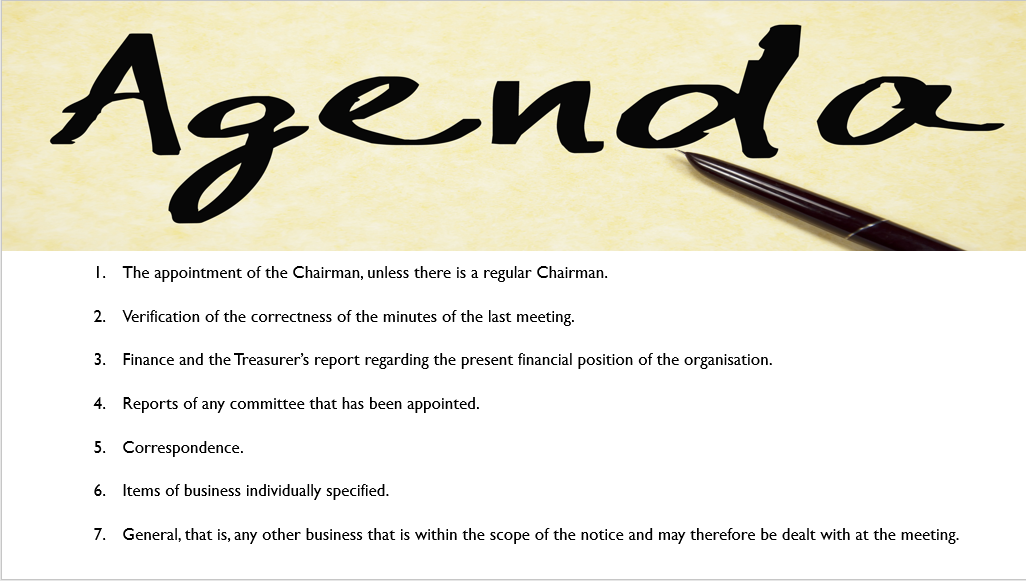
The word “agenda” in Latin, means “the things to be done” and an agenda-paper is a sheet of paper on which the items of business to be dealt with at the meeting are set out in the order in which it is proposed that they should be dealt with.
It is virtually impossible to conduct a meeting in an orderly manner without an agenda-paper. Unless the meeting has been convened to deal with one item of special business only, in such a case there will be no need for an agenda-paper to be drawn up, since everyone present will know the nature of the business to be dealt with. This will have been set out in the notice of the meeting.
It is always practical to supply all those attending with a copy of the agenda-paper.
In the case of a private meeting it is a useful practice, unless the agenda is too long, for it to be included in the notice of the meeting. This not only informs recipients of particulars of the business to be dealt with at the meeting, but also effect a saving in stationery and postage. A further advantage of the practice of including the agenda in the notice of the meeting is that time is saved at the meeting, since everyone present will have received a notice including a copy of the agenda-paper.
Order of Items in the Agenda-Paper
Items of business are usually arranged in the agenda-paper in the following order:

The above-mentioned order in which items are set out in the agenda-paper is only a suggestion and if the Chairman thinks that this order should be varied for some reason, this may be done, provided that the meeting agrees to the variation. This approval is important if subsequent disputes regarding the manner in which the meeting was conducted are to be avoided.
It sometimes happens that an agenda-paper omits an item of business that should have been included, but that was left out owing to an oversight. In such a case it is important to ensure that the matter is covered by the notice of the meeting. If it is so covered, the approval of the meeting to its inclusion should be obtained by the chairman in order to forestall any possibility of a dispute at a later stage. If the item is not covered by the notice, it can only be added to the agenda if all the members of the organisation are present and so agree.